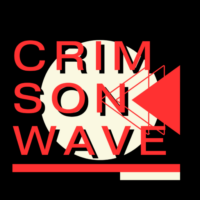In the midst of the 1970s disco and progressive rock maximalism, punk rock sought to completely change the rules of the game, stripping rock n’ roll to its basic elements. Bands such as The Clash, The Ramones, Sex Pistols, and Misfits catapulted punk rock into the mainstream and, in doing so, became integral members of the punk rock pantheon. Despite the mainstream impact of these few bands, punk rock was a diverse and extensive scene from the beginning. Oi! and Street Punk bands such as Sham 69, Cock Sparrer, and Angelic Upstarts emphasized the working class struggles, while The Jam took influence from the mod subculture and Television took a more bohemian approach. Early punk rock’s extensive catalog gives us some great albums, although some of them have not had the exposure and appreciation they deserve. Here are seven lesser-known early punk rock albums. These are not necessarily obscure or underground albums, but they are definitely underappreciated classics.
Wire - Pink Flag
Wire’s debut album shows how much punk rock was willing to experiment from the beginning. With its combination of extremely brief, fast, and raw songs, and jangly mid tempo songs, its grim and witty lyrics and its airy atmosphere, Pink Flag carries the seeds of both hardcore punk and post-punk. Pink Flag largely eschews the three chord blues progression that punk rock inherited from rock n’ roll, instead embracing the more dissonant and fast-changing progressions that are associated with modern punk. The guitar work goes beyond typical punk power chords. Bar chords are often used throughout the album and minimalistic lead guitar lines add complexity to the album’s harmony. The intricate guitar work is complemented by snappy, minimalistic, precise drumming and driving basslines interweaving with the guitar riffs. Meanwhile, Colin Newman sings -alternating between talk-singing, yelling and screaming- about the vanity, shallowness and consumerism engendered by capitalism. Even though Pink Flag will be 48 years old this year, and it has had its fair share of critical acclaim, it’s an album that deserves the legendary status of London Calling or Never Mind the Bollocks…
Album highlights:
- “Reuters”
- “Field Day for the Sundays”
- “Ex Lion Tamer”
- “Pink Flag”
- “106 Beats That”
- “Mr. Suit”
- “Mannequin”
- “12XU”
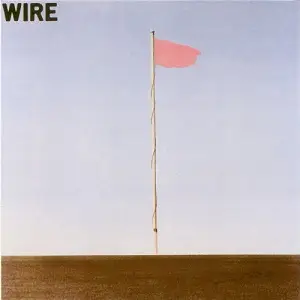
The Ruts - The Crack
While The Clash is lauded for incorporating reggae, among other genres, into their music, they were far from the only punk band to incorporate reggae influences into their music. Formed in 1977 from the remains of a pub rock band, The Ruts became involved in anti-racist organising and were invited by the reggae band Misty in Roots to release their first single on their label. The Crack, their first album carries this reggae influence and combines it with manic punk urgency to create an underrated classic.
The album shows a departure from punk’s most brute and raw instances, abandoning three chord songs for single note guitar riffs, some full chords, and chorused guitars. The album’s sonic palette is further augmented with the occasional horns, piano, and synths. The Ruts depart from the simple verse-chorus structure for longer songs and more complex arrangements, putting their creativity and musicianship on display.
The Ruts, as they said in interviews, were not particularly political, but they sang about what they experienced. Common themes include interpersonal conflict, alienation, racism, and police brutality. “Jah War” was written after a member of their aforementioned mentors Misty in Roots was severely beaten by the police in a protest against the fascist National Front. This would be the only studio album by The Ruts with singer Malcolm Owen; he would unfortunately die a year later. Yet, The Crack remains a punk classic, and it was an important influence to the likes of Henry Rollins and Brian Baker.
Album highlights:
- “Babylon’s Burning”
- “Dope for Guns”
- “Savage Circle”
- “Jah War”
- “Criminal Mind”
- “Out of Order”
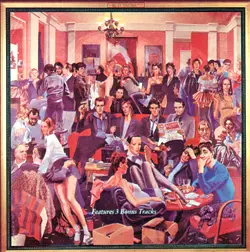
Skids - Scared to Dance
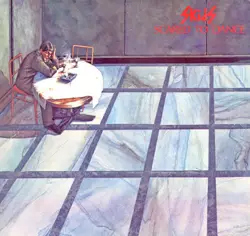
Along with The Exploited and The Rezillos, Skids were one of the most prominent Scottish punk bands. After opening for The Clash, they were signed to Virgin Records and released Scared to Dance in 1979. The album, while clearly being a punk record, also bridges the gap between punk, post-punk, and new wave. Stuart Adamson’s signature guitar chops and catchy, anthemic choruses are the driving force of the album, rounded out by a tight rhythm section. The album feels diverse and covers a lot of ground, while still being cohesive. It features the anthemic “Into the Valley” and “The Saints are Coming”, the slower, almost post-punk “Scared to Dance”, and the waltz-like “Dossier (Of Fallibility)” presages late Black Flag’s most dissonant and unhinged moments. The lyrics are rather uncharacteristic for a punk album. They feel more esoteric, meditative and poetic. War, abandonment, and anomie are themes central to the album, while “Charles” illustrates the proletarian experience quite poignantly. Skids would embrace a post-punk and new wave sound on their following albums, and Stuart Adamson would later go on to form Big Country, but Scared to Dance remains one of the finest and most interesting early punk albums.
Album highlights:
- “Into the Valley”
- “Scared to Dance”
- “Of One Skin”
- “Dossier”
- “The Saints Are Coming”
- “Charles”
The Adicts - Songs of Praise
The Adicts represented yet another facet of punk rock. Their circus-esque, A Clockwork Orange-inspired image, stage theatrics, and light-hearted, tongue-in-cheek lyrics associated them with the punk pathetique subgenre, along with bands such as Toy Dolls, Peter and the Test Tube Babies, and Splodgenessabounds. The Adicts’ first album, Songs of Praise is a great representation of the punk pathetique style. The album feels frenetic, raw, and alive, full of distorted guitars, feedback and harmonics. The crunchy, distorted bass adds energy of its own with prominent, wandering lines, and the drums provide some raw intensity with straight eight notes either on hi-hats or the floor tom. Catchy, sing-along choruses led by Monkey’s melodic yet aggressive voice for a very addicting experience. The lyrics are playful and rather mundane, yet the anti-war songs “England” and “Calling Calling” and the uplifting “Viva La Revolution” add some depth to the album. The Adicts are still going strong, with their latest album released in 2017, still Songs of Praise remains one of their finest releases.
Album highlights:
- “England”
- “Just Like Me”
- “Distortion”
- “Calling Calling”
- “Numbers”
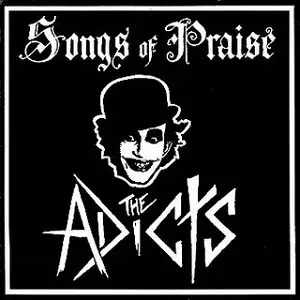
Wipers - Is This Real?
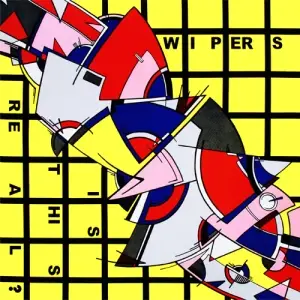
Wipers’ history is an unusual one. Singer and guitarist Greg Sage fell in love with cutting records on his father’s lathe, and in 1977, he formed Wipers, more as a recording project than as a band. His idea was to record 15 albums in 10 years, bypassing touring and promotion. Maintaining independence and artistic freedom was very important for them, they released their first single in 1978 through their own label. They recorded their first album on a 4-track, and planned to self release it, but decided to release it through a bigger label, which required them to re-record the album in a professional studio.
The result was an album that felt idiosyncratic and sincere, clearly a punk album, but at the same time, not just a punk album. The album is driven by succinct, catchy guitar riffs. There’s a lot of dissonant moments, but some progressions and vocal melodies also hint to 60’s rock and pop harmony. The muddy, fuzzy guitar tones fill the sonic spectrum, making the album sound huge, while the big, boomy bass dominates the lower frequencies. The bass also takes center stage on songs like “Up Front” and “Alien Boy”, the latter one featuring some fascinating bass riffs in fifths. The drums bring a lot of energy, and the snappy snare cuts through beautifully. The lyrics are generally short, direct, uncomplicated. Sage alternates between harsh angsty vocals, and more melodic wailing, singing about alienation, isolation, and identity. Sci-fi themes are used as a metaphor for these topics. “Alien Boy” stands out as a sympathetic narrative about an acquaintance of the band who had schizophrenia, who would later die as a victim of police brutality.
Wipers would not meet their goal of putting out 15 records in 10 years, but they did have a prolific career full of great albums, and Is This Real? displays the band at their rawest, most earnest moment, earning them a spot among the best punk albums of all time.
Album highlights:
- “Return of the Rat”
- “Up Front”
- “Tragedy”
- “Alien Boy”
- “D-7”
- “Don’t Know What I Am”
Richard Hell and The Voidoids - Blank Generation
Before The Voidoids, Richard Hell had already accumulated his fair share of punk cred. He was part of the Neon Boys, who would become Television. Later, his underwhelming musical abilities (by Television standards) and his unpredictable, frantic stage presence got him kicked out of Television, and he went out to form The Heartbreakers, along with Johnny Thunders. After staging a failed coup against Thunders, he left and formed The Voidoids. After such troubled history, Blank Generation, The Voidoids’ debut album would be released in 1977.
Blank Generation, along with Television’s Marquee Moon, represents the more experimental, avant-garde expressions of punk. Yet, while Marquee Moon explores more mid-tempo songs with complex arrangements, lengthy solos, and modal experimenting, Blank Generation opts for unhinged, maniacal energy, and atonal, chromatic moments. The album feels like an exercise in controlled chaos, with jagged, messy, jangly guitars, and complex basslines, while the drums keep the band tethered down to earth. Still, underneath the ruckus, a jazzy, rock n’ roll substrate can also be heard. Richard Hell’s melodic, whiny, hiccupy voice can be compared to other NY punks like Joey Ramone, Patti Smith and Tom Verlaine. The lyrics keep in tone with the music, featuring surreal, cryptic imagery and nihilistic lyrics about drugs (especially heroin) and partying. Richard Hell and The Voidoids’ career was rather short lived, they only released one more album in 1982, but Blank Generation remains one of 1977’s more important punk albums.
Album highlights:
- “Love Comes in Spurts”
- “Liars Beware”
- “New Pleasure”
- “Down at the Rock and Roll Club”
- “Blank Generation”
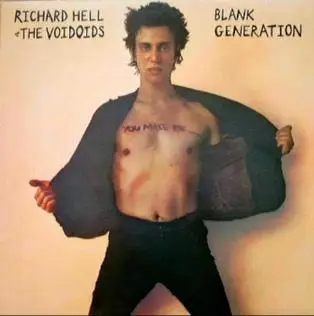
Mission of Burma - Vs

Mission of Burma was another band that decided to experiment with the vast possibilities that punk rock had opened. Formed in 1979 as a three-piece, the band soon incorporated Martin Swope, attracted by his experimentations with tape loops, which would become a signature of the band’s sound. In 1981 they signed with Ace of Hearts, and after releasing a successful EP they would release their debut album, Vs in 1982. The album showcases the band’s resourcefulness, featuring long instrumental parts, complex arrangements and alluring harmonic decisions. The instrumentation is balanced between jangly, cristalline guitars, with the occasional use of tremolo, intricate, wandering basslines, and intense, aggressive drums. An occasional trumpet and the tape loops give the album a greater palette of textures. The vocals contribute to the album’s noisy atmosphere, featuring overlapping vocal lines and octaved voices, featuring hypnotic chant-like repetition of cryptic lines like “Where thoughts are reborn” from the song “Trem Two”. The lyrics are often impressionistic and oblique, rarely painting a clear picture, still existentialist themes can be grasped through their poetic lyrics. The year after releasing their debut album, Mission of Burma disbanded, due to singer and guitarist Roller Miller’s worsening tinnitus, but reunited again in 2002, releasing four more albums, before disbanding for good in 2020. Vs remains in the history of punk as a trailblazing album, and a fundamental listen for every punk rock fan.
Album highlights:
- “Secrets”
- “Trem Two”
- “New Nails”
- “Dead Pool”
- “Mica”
- “The Ballad of Johnny Burma”
- “Fun World”
